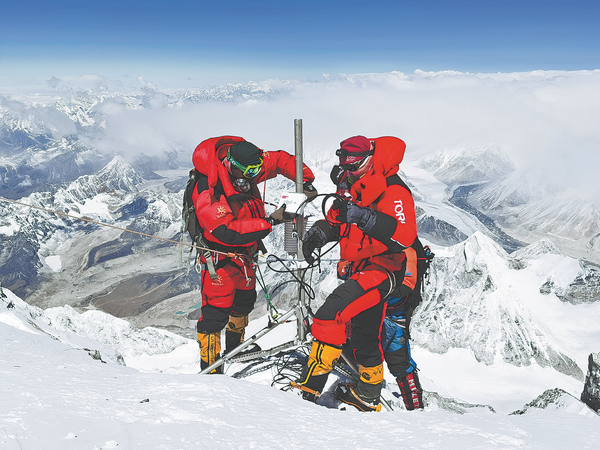Peak moments on Mount Qomolangma


Zhu Tong, head of the College of Environmental Sciences and Engineering of Peking University, led his team to explore the impact of an ultra-high altitude environment on human health. The team of 27 scientific researchers have monitored the health condition of 50 volunteers positioned at varying altitudes: 5,200 meters, 5,800 meters, 6,350 meters and 8,848 meters.
"As you rise in altitude, your body will change accordingly, which makes this intuitive data valuable," says Zhu, 59, who is also an academician at CAS.
The team has collected blood, urine, saliva, feces and other samples, measure blood pressure, and monitor the pulse wave velocity of the volunteers, including Zhu himself, to provide samples for follow-up research. Researchers hope the results can help provide preventive and protective measures for the health of people living and working at high altitudes, as well as short-term visitors.
With the most disciplines covered, the highest number of scientific research participants, and the most advanced equipment utilized, the expedition is the largest since surveys of the Qinghai-Tibet Plateau started in 2017.




































